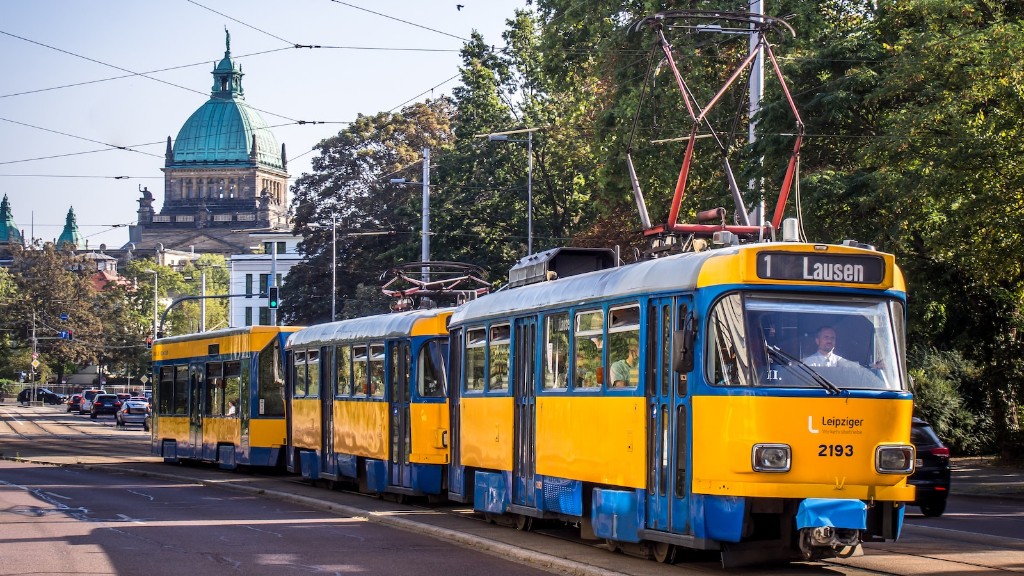Background
Traveling to Austria from Germany is a safe, hassle-free experience with certain regulations that should be adhered to, such as visa requirements, travel documents, and customs inspections. These regulations vary from one country to another, so it is important to make sure that all the necessary documents are in order before the trip.
Germany and Austria are two of the world’s most visited countries, and their close geographical proximity has resulted in many travelers frequently journeying between the two destinations. There are several options for international travel, including rail, road, and air. Depending on the mode of transport, traveler’s regulations may vary.
In this article, we will discuss the travel regulations from Germany to Austria. We will explain the different kinds of travel documents required, and the different regulations and procedures that must followed. We will also provide an insight into the culture and language of the two countries, and advice on what to expect when traveling between them.
Visa and Travel Documents
Before traveling to Austria from Germany, travelers are required to have a valid travel document or visa. A travel document is typically a passport or national identification card that proves the traveler’s identity, and a visa is required to enter Austria if the may stay more than 90 days. These documents must be obtained from the homeland’s government before departure.
A valid email address, birth date, and passport are also required for online visa applications, and they must be submitted at least a week before departures.
Customs and Quarantine Regulations
The customs regulations for travelers to Austria from Germany requires that any food or personal items brought into the country must be declared, and certain items may be prohibited. It is also required to declare the origin of goods purchased abroad, and if applicable, information concerning any product samples that may be in the traveler’s luggage. Furthermore, all travel documents such as passports and identification cards must be presented upon request at the Austrian border.
Travelers from Germany must also adhere to quarantine and health regulations as prescribed by Austrian authorities. As a precautionary measure, all travelers must complete a medical check-up and fill out a questionnaire before boarding the flight. Additionally, pets must also be checked with a veterinarian and vaccinated before taking a flight to Austria.
What to Expect
When traveling to Austria from Germany, travelers should expect a pleasant trip, due to the close proximity and similarities between the two countries. The people are extremely welcoming and friendly, so travelers should make sure to greet in German and say “Guten Tag” or “Danke” whenever possible.
German and Austrians both speak a variety of German dialects, but Austrian German is especially unique, as it includes many Czech and Italian words. Staying in Austria is quite affordable and most hotels or hostels accept both Euro or Credit cards. Credit Cards are widely accepted in restaurants, stores, and museums.
Due to Austria’s alpine terrain, Austrian cuisine has plenty of hearty meals, like Schnitzel, Wiener schnitzel, or Käsespätzle for dinner, and apple strudel or dumplings for dessert.
Safety
Austria is a safe country to travel to from Germany, although travelers should still take precautions when travelling. Austria is a secure place, but tourists should still keep their valuables secure, and be wary of pickpocketing and scams.
It is wise to pack light-weight clothing as the temperatures can drop abruptly, even during the summer months. Carrying an umbrella is also a must as the weather can change very quickly, and it is advisable to bring a complete first-aid kit with all the necessary medical items.
Transportation
Transportation inside Austria is a breeze with the plentiful transportation options available. Austria has an excellent infrastructure with an extensive rail network, and road and bus services. Public transport is available on all major cities and towns, including the Vienna subway and trams.
The train is the most convenient way to travel within metropolis, as it is the fastest mode of transport in the country. There are also domestic flights from Austria’s larger cities. Taxis are generally affordable, but rates vary depending on the time of day and demand.
Immigration and Emergency Assistance
Immigration rules are in place for travelers in Austria. It is important to remember that citizens of non-European countries must have a valid visa and complete a form to register with the police upon arrival. The form can usually be found at airports and train stations. Additionally, it is important to carry identification at all times.
In case of an emergency, Austria has well-equipped hospitals and medical centers able to provide assistance and care. The Austrian police force is also very effective and provide assistance to travelers in need.
Culture, Language, and Money
Austria is known for its cultural heritage, and it is home to many world-famous musical and entertainment attractions. The Austrian culture is rooted in the diverse ethnic backgrounds of its population, such as the Germans, Czechs, and Hungarians. Moreover, Austrians are more prone to politeness than their non-European counterparts.
Although the Austrian language is derived from German and many Austrians speak English, it is important to be prepared with some basic German phrases, such as “Guten Tag”. German is the official language of Austria, and language classes or learning apps are available to help travelers at any level.
In terms of currency, the Euro is the official currency of Austria. ATMs can be found in most cities, and travelers can easily exchange cash at any bank or exchange kiosk. Credit cards are also widely accepted in most restaurants and stores.
Accommodation
Accommodation in Austria is fairly inexpensive and comfortable, with hostels, hotels, and guesthouses accommodating visitors year-round. Apartments, campgrounds, and ski chalets are also popular choices for travelers. Prices range from 50 to 200 Euro per night, depending on the type of accommodation.
Hostels and apartments are popular choices for budget travelers, and there are many online booking sites available to compare prices and amenities.
Sightseeing
Austria has many destinations to explore and there is something for everyone. Some of the best places to visit in Austria are Vienna, Salzburg, Innsbruck, and Graz, as well as some of the lesser-known, but equally as beautiful, towns and villages.
Each city has its own unique charm, and there are plenty of sightseeing spots and activities to enjoy, like hiking and skiing in the Alps, visiting castles and palaces, taking a stroll in Vienna’s inner ring, attending a world-renowned opera house, or attending a beer garden.
Food and Drinks
Austrian cuisine is mouth-watering and travelers can explore the many options available. Traditional Austrian dishes such as Sachertorte, Wiener schnitzel, and various types of sausages are popular favorites. In addition to the many local restaurants, there are a variety of international eateries available.
Drinks wise, Austria is known for its excellent beer, wine, and coffee culture, so travelers have a lot to explore in terms of beverages. Beer is available in many forms, including “Burg Pilsner” or “Wieninger” pilsner. For those looking for something more exciting and unique, Austria also offers a range of craft beers and specialty wines.
Entertainment and Shopping
Austria’s music and entertainment scene is vibrant and entertaining. From the nightclubs and bars in Vienna to the open-air country festivals, Austria has something for everyone. Live concerts and performances are also popular, with world-class musicians taking to the stages.
Shopping in Austria is a great way to explore the different cultures of the country. From boutiques and department stores to local markets, the options are limitless. Shopping is especially fun around the holidays, with special discounts and events all over the cities.
Conclusion
Austria is a beautiful country to visit and explore, and travelers from Germany can have a pleasant journey as long as they follow all the relevant regulations and requirements. It is important to bring the necessary travel documents and declare any items brought to the country upon entry.
With affordable accommodations, delicious food, world-class entertainment, and breath-taking landscapes, Austria is a destination truly worth exploring. So, with a touch of knowledge and preparation, travelers can jump into Austria with confidence and make their visit to the land of “True Viennese Gemütlichkeit” (Viennese coziness) unforgettable.



